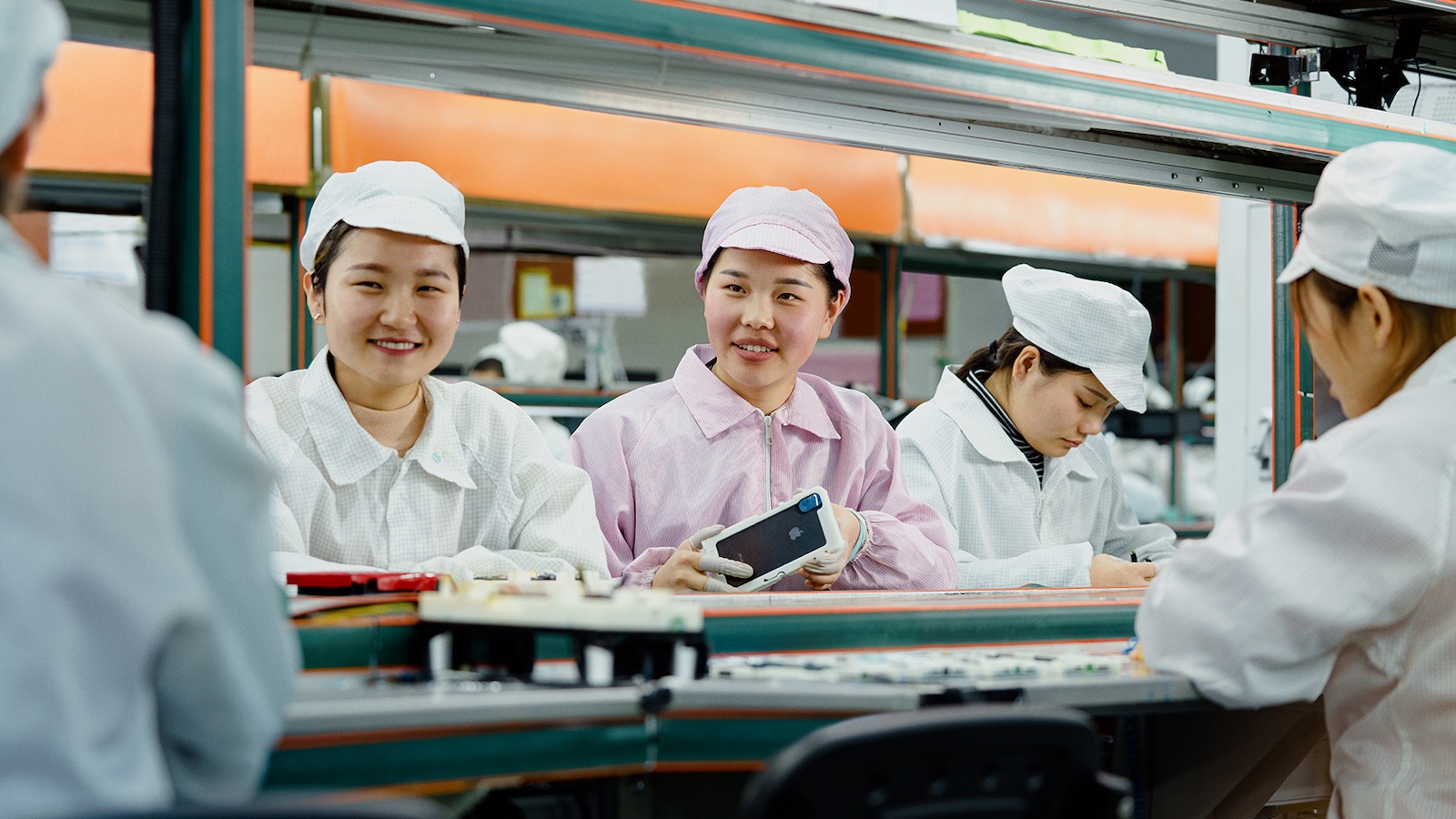09.01.2025
Apple is significantly accelerating the rollout of automation and robotics across its manufacturing supply chain, DigiTimes reports. While Apple has advocated for increased automation in supplier facilities for over two

While Apple has advocated for increased automation in supplier facilities for over two years, sources familiar with the matter say that Apple now requires automation as a standard prerequisite for awarding manufacturing contracts. This is said to be part of a broader effort to minimize labor dependency, stabilize product quality and uniformity across different facilities, and reduce long-term production costs amid ongoing supply chain diversification away from China.
Apple's alleged automation mandate spans all major product categories, including the iPhone, iPad, Mac, and Apple Watch. Apple now purportedly expects suppliers to fund their own automation upgrades rather than rely on Apple to finance or subsidize the necessary capital equipment. This policy change diverges from Apple's previous approach, where the company frequently invested in tooling and machinery for contract manufacturers to meet its specifications.
The financial burden of this new automation requirement is apparently already impacting supplier margins. High initial capital expenditure, coupled with operational disruptions during integration of robotic systems, has reportedly strained profitability for some suppliers.
Apple still continues to assist suppliers in areas related to environmental responsibility. The company's 2030 target to achieve carbon neutrality across its entire supply chain includes direct support for upgrading to energy-efficient equipment and more sustainable materials.
Apple ostensibly hopes that increased use of robotics will help standardize processes, digitize inspections, reduce the impact of labor shortages and political instability, implement consistent processes for new suppliers, and mitigate the challenges of maintaining consistent build quality when production is increasingly split across multiple countries.
Tag: DigiTimes
This article, "Report: Apple Demands Suppliers Switch to Robotics for Manufacturing" first appeared on MacRumors.com
Discuss this article in our forums
You may also be interested in this
Apple Event for New iPads…
04.09.2024
Apple is "unlikely" to hold an event to announce new iPad Pro and iPad Air models, according to sources cited by Taiwanese supply chain publication DigiTimes. Bloomberg's Mark Gurman already
Report: Work on Multiple …
11.28.2023
Work on multiple next-generation Vision Pro headsets is ongoing, according to two new reports coming out of Asia. DigiTimes claims that there are a total of four different second-generation Vision
Foldable iPhone Developme…
07.02.2025
Apple moved its long-rumored foldable iPhone into its prototyping phase with suppliers last month ahead of a launch scheduled for next year, DigiTimes reports. According to supply chain sources speaking
Apple’s First 5G Ch…
09.19.2024
Apple is rumored to have been working on its own 5G modem for iPhones since 2018, but the first version of the chip might lack mmWave support. Taiwanese industry publication
iPhone 18 Rumored to Feat…
01.10.2025
While the iPhone 17 series is still more than eight months away from launching, there are already rumors about the iPhone 18 models coming next year. Taiwanese supply chain publication
TSMC Demos Next-Gen Chip …
12.12.2023
TSMC has already demonstrated prototype 2nm chips to Apple ahead of their expected introduction in 2025, the Financial Times reports. Apple is said to be closely aligned with TSMC in
MacBook Pros With M4 Pro …
08.28.2024
Apple's supply chain is beginning mass production of next-generation 14-inch and 16-inch MacBook Pro models with M4 Pro and M4 Max chips in August, according to Taiwanese industry publication DigiTimes.
Apple Predicted to Releas…
10.04.2024
Taiwanese company Novatek has announced plans to begin mass production of OLED displays with TDDI (touch and display driver integration) technology as early as the second quarter of 2025, supply


